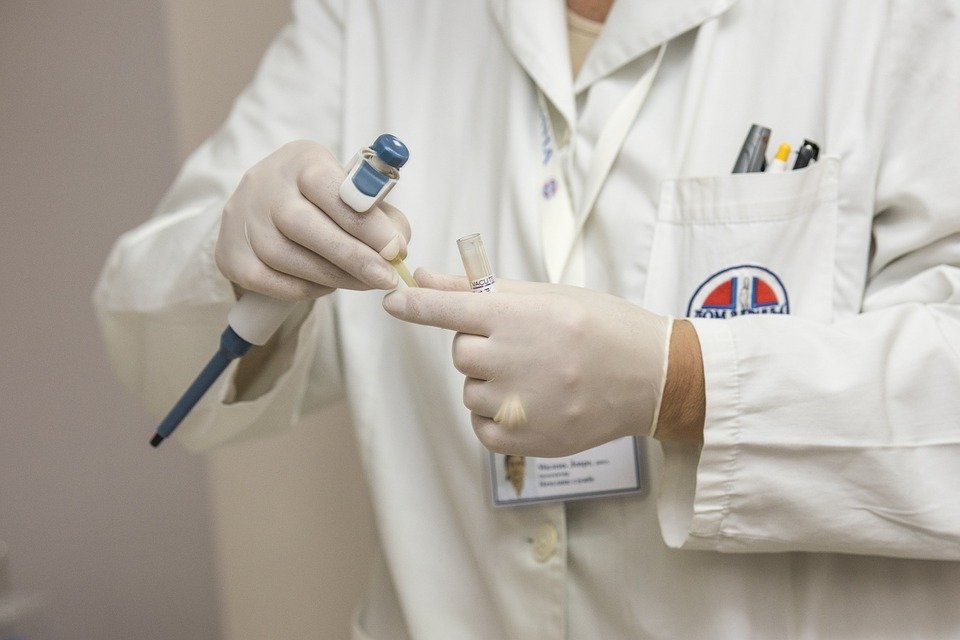
A prospective development in the fight against COVID-19 was discovered by researchers in Paris, France, last week. An antibody from a patient who had recovered from SARS blocked the COVID-19 infection in a laboratory setting.
SARS (Severe Acute Respiratory Syndrome) is another form of coronavirus, also thought to have originated from animals, causing flu-like symptoms. It is similar in structure to COVID-19. Scientists in Paris had isolated the antibodies for this research back in 2003, when SARS first spread around the world quickly, killing nearly 800 people. This research is proof of concept that antibodies from SARS can prevent severe COVID-19 infection and its spread, paving the way for future treatments of coronaviruses.
But are antibodies the answer to a treatment or even immunity from COVID-19?
The first phase of testing in America has been to determine who actively has COVID-19. But the next phase is to determine who has had the virus. Patients who have had and recovered from COVID-19 may have produced antibodies to fight off the virus and these antibodies can potentially lead to immunity.
What is Antibody Testing?
Antibodies are proteins that your body builds in the bloodstream to fight off infection and ultimately provide immunity to viruses. They are the body’s way of remembering how it responded to an infection so that it can react the same way again, should the infection return. When you receive a flu vaccine, the body reacts in the same way, creating antibodies to the flu virus. Antibodies are disease specific.
Antibody testing is a blood test, screening for antibodies in the bloodstream. This testing is administered by your health care provider, via a blood test or finger prick-style test. The blood is tested for two types of antibodies – those which develop early in an infection, called IgM antibodies, and those which develop after you have recovered, called IgG antibodies. The current antibody testing cannot yet detect whether you are immune to COVID-19 because more research is required to determine how long these antibodies will provide protection.
Why is Antibody Testing Important?
One of the complicated elements of COVID-19 is that not everyone who carries the virus displays symptoms. Antibody testing will provide a better representation of how prevalent the virus has been. Once scientists determine who has had the virus, they will have a clearer picture of how severe the illness is, how the virus spreads and who might be immune to the virus. Herd immunity can occur when a significant portion of the population in any given area have enough antibodies to protect those who have not yet had the virus.
These tests may help with an experimental treatment for COVID-19 called convalescent plasma. Researchers are studying how antibodies in plasma, the liquid in the blood, donated by people who have recovered from COVID-19, may be able to help those who currently have the virus.
Last month, actor Tom Hanks, one of the first celebrity names to contract the virus, posted photos on his social media accounts of his convalescent plasma donation. He and his wife, Rita Wilson, were first administered an antibody test, followed by the plasma collection. Doctors hope their plasma, and that of other donors, will contain vital antibody information to potentially create a treatment for COVID-19.
Current Antibody Testing
The FDA has approved many antibody tests under their Emergency Use Authorization, meaning they have not yet received FDA approval but are permitted for use in the United States. Some tests claim to be 100% accurate while others have shown false positive results. Some tests can mistake IgM antibodies from other coronaviruses. The CDC, along with many private and public labs, are working to develop antibody testing for the general public.
It is important to note that much more research is needed before antibody testing can be guaranteed 100% accurate and before it can promise a form of treatment for COVID-19.
What do the Results Mean?
Antibody testing should not be performed until you are fully recovered from COVID-19.
A positive antibody test means you likely had COVID-19, or possibly another coronavirus. This positive result might mean that you have some immunity to the virus but it is still too early to state that with any degree of certainty.
A negative antibody test means you have not come into contact with the COVID-19 virus. Or it is possible that you have come into contact with the virus but not produced any antibodies. This is referred to as a false negative.
It is important to note that you may falsely test negative because it can take up to three weeks after an infection to develop antibodies.
One of the challenges with antibody testing is that these antibodies for the coronavirus COVID-19 look very similar to those that cause other common illnesses, such as the common cold.
Researchers warn it will take more time to develop more accurate testing.
A significant portion of the population must have proven immunity to COVID-19 before social distancing and government restrictions can be lifted safely.
The bottom line
The World Health Organization is warning against the assumption that having antibodies means you are immune to the virus. Much more testing is needed to determine the validity of these tests and the meaning of the results.
Antibody test results should not provide a false sense of security. And eligibility for such testing varies depending on the availability of testing in your area.
Advances are being made against COVID-19 around the world on a daily basis. There is hope. But until we have a treatment for the virus, it is important to continue to take all necessary precautions against infection. Wash your hands, wear a mask and maintain social distancing guidelines as directed.
Midland Health is offering Corporate Wellness Services for employers during the COVID-19 crisis. We are conducting infrared temperature screenings for employees before starting their shift. Please ask for Jo at 414-378-2436 for details.

Leave a Reply